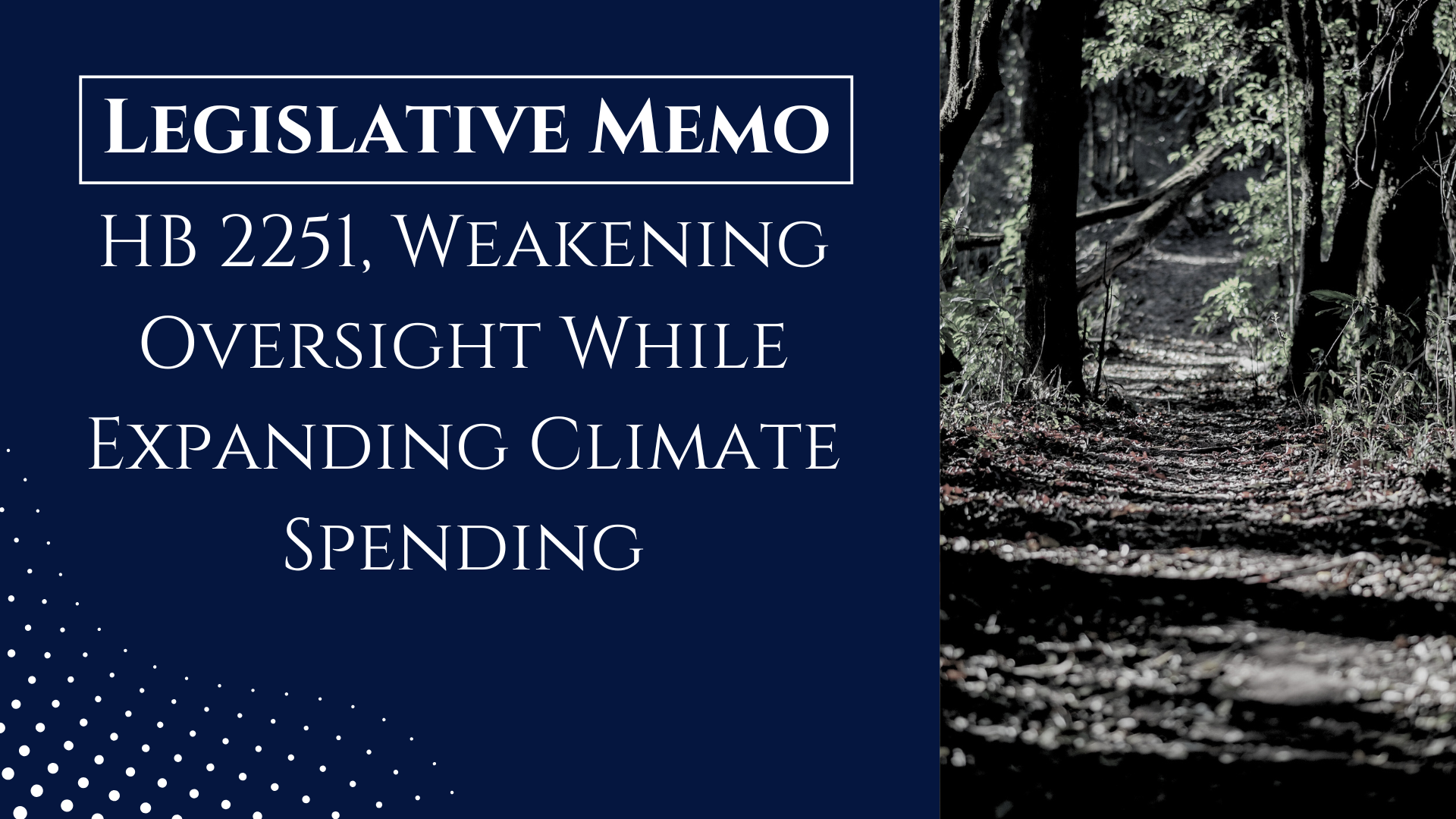Today, the Governor's $2 billion carbon tax proposal was submitted as part of his plan to fund education and cut carbon emissions. SB 5127 would put a tax of $25 per metric ton (MT) of CO2 on carbon-emitting energy, including gasoline and natural gas for home heating.
We will do a more thorough analysis of the legislation in the future, but we wanted to estimate the average cost per household under this new tax. Although some have claimed the taxes will hit "polluters," not the public, a study from Washington State University found oil companies and others would pass on 100 percent of the costs.
On average, families would see an increase in their gas and heating bills totaling about $400 a year. Families would feel the tax in three areas.
First, for gasoline, $25 per MT of CO2 equates to about 25 cents per gallon of gas. In Washington state, the average vehicle travels about 10,424 miles a year. According to the Washington State Transportation Commission, the average fuel economy for vehicles currently on the road is 20.5 MPG. This calculates to $127 per year per vehicle on average.
According to the University of Michigan, the average fuel efficiency for new cars sold in December is 24.9 MPG. So, even for new cars, the carbon tax would cost about $105 per year.
Second, many households use natural gas in Washington state to heat their homes and water. The average household in the Seattle Area uses about 650 therms of natural gas per year. Each therm of natural gas emits 13.45 pounds of CO2 for a total of 8,740 pounds, which is about four metric tons of CO2. At $25 per metric ton, that is about $100 a year per household.
In Spokane, by way of comparison, the average residential use is 792 therms per year, costing about $121 per household.
Finally, Washington's electricity is very low carbon. According to the Energy Information Administration, about 6 percent of Washington's electricity is from coal, and about 10 percent from natural gas. The average number of kilowatt hours used by each home in Washington is 11,568. Using the carbon intensity of coal and natural gas electricity, this adds about 2,900 lbs of CO2 to the household bill, costing an additional $33 per year.
So, for an average household with two cars, the Governor's carbon tax would add about $386 per year in the Seattle area and $408 in Spokane.
The administration will justify this cost by arguing that we need to increase taxes to pay for education, but also with the claim that a carbon tax will reduce CO2 emissions. In their briefing paper on the proposal, they argue, "carbon pricing is the single most effective of the many tools available to policymakers confronting climate change."
This is a very different tone than the Governor took in 2015, when he told Grist that a carbon tax "doesn't give you the most important tool to limit carbon pollution, which is a limit on carbon pollution." Indeed, in the Governor's book he specifically opposed carbon taxes, saying "it does not offer a mechanism to produce reductions."
There are a number of other problems with the proposal – including spending much of the revenue on political projects and special interest groups – but the high cost and the contradiction in tone from the Governor's previous arguments demonstrates this is more about new taxes than environmental benefit.





